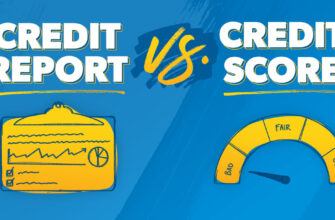Credit and Financial Planning: How to Use Credit to Achieve Your Financial Goals
Credit utilization in financial planning plays a crucial role in achieving one’s financial objectives. Credit, when used wisely, can be a powerful tool that enables individuals to meet their long-term financial goals. By integrating credit into their long-term financial plans, individuals can leverage its benefits while minimizing potential risks. In this article, we will explore the significance of credit utilization in financial planning and how credit can be utilized as a tool to achieve financial objectives. We will also discuss strategies for integrating credit into long-term financial plans effectively.

Credit Utilization in Financial Planning
Credit utilization refers to the ratio of the amount of credit you are currently using to the total amount of credit available to you. It is an essential factor in determining your credit score, which in turn affects your ability to access credit and the interest rates you receive. When it comes to financial planning, understanding and managing credit utilization is key.
Here are a few key points to consider:
- Monitoring Credit Utilization: Regularly monitor your credit utilization ratio to ensure it remains within a healthy range. Aim to keep your credit utilization below 30% of your available credit. High credit utilization can negatively impact your credit score and make it harder to access credit in the future.
- Paying Off High-Interest Debt: Prioritize paying off high-interest debt first, as it can accumulate quickly and hinder your financial progress. By reducing your outstanding debt, you can lower your credit utilization and improve your credit score over time.
- Responsible Credit Card Usage: Properly managing your credit card usage is essential. Pay your bills on time and in full to avoid interest charges and late payment fees. By utilizing credit cards responsibly, you can build a positive credit history and increase your creditworthiness.
Credit as a Tool for Achieving Financial Objectives
Credit can serve as a valuable tool in achieving your financial objectives. Whether you aim to buy a home, start a business, or invest in your education, judicious use of credit can facilitate your journey. Here are a few ways credit can help you achieve your financial goals:
- Homeownership: Obtaining a mortgage allows you to purchase a home even if you don’t have the entire purchase price upfront. By using credit strategically, you can secure a favorable mortgage rate and make your dream of homeownership a reality.
- Entrepreneurship: Starting a business often requires capital investment. Credit can provide the necessary funds to launch your venture, purchase inventory, or expand your operations. However, it is crucial to manage business credit separately from personal credit to mitigate risks.
- Education and Career Advancement: Pursuing higher education or professional development can be expensive. Student loans or educational credit programs can help you access the education you need to advance your career and increase your earning potential.
Integrating Credit into Long-Term Financial Plans
To effectively integrate credit into long-term financial plans, consider the following strategies:
- Setting Clear Financial Goals: Define your long-term financial goals and outline the steps required to achieve them. Determine how credit can support your objectives without compromising your overall financial well-being.
- Creating a Budget: Develop a comprehensive budget that includes your credit obligations. Ensure that you can comfortably manage your debt payments while meeting your other financial commitments.
- Building an Emergency Fund: Establishing an emergency fund is crucial to provide a safety net in case of unexpected expenses. By having savings readily available, you can avoid relying on credit for emergencies and maintain better control over your financial situation.
- Regularly Reviewing and Adjusting: Periodically review your credit utilization, interest rates, and overall financial plan. Make adjustments as necessary to optimize your credit usage and align it with your evolving financial goals.
Conclusion
Credit utilization in financial planning can significantly impact your ability to achieve your financial goals. By treating credit as a tool and integrating it strategically into your long-term financial plans, you can leverage its benefits to fulfill your aspirations. Remember to use credit responsibly, monitor your credit utilization, and make informed decisions to ensure credit remains a valuable asset on your path to financial success.









